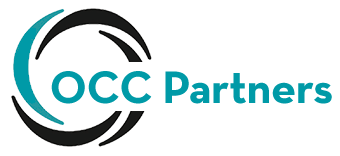Tips to Succeed in Nursing Interviews
Everyone hates interviewing. It can be scary, nerve-wracking, anxiety-producing, discouraging, and it’s time consuming when you’d rather be doing anything else.
So, how do you make the most of your interviews?
Two simple recommendations…prepare and practice.
 Seek out a couple sources for advice, friends who have interviewed recently, and website blogs. On the internet, research topics like ‘interviewing advice’ or ‘interview questions’. Spend time reviewing the information you discover before you begin your preparation. Your preparation before the interview will make a huge impact on how well you do at the interview.
Seek out a couple sources for advice, friends who have interviewed recently, and website blogs. On the internet, research topics like ‘interviewing advice’ or ‘interview questions’. Spend time reviewing the information you discover before you begin your preparation. Your preparation before the interview will make a huge impact on how well you do at the interview.
Put together a brief explanation of why you’re looking for a new role. In some circles this is referred to as an elevator pitch. According to Wikipedia, ‘The name ‘elevator pitch’ reflects the idea that it should be possible to deliver the summary in the time span of an elevator ride, or approximately thirty seconds to two minutes and is widely credited to Ilene Rosenzweig and Michael Caruso (while he was editor for Vanity Fair) for its origin.[2][3] Bottom line, it’s your story, succinctly conveyed in a short elevator ride. Your ‘story’ should be about a paragraph long. It’s challenging to be succinct, so write it down, review it, and edit until you’re satisfied. Start with a high-level explanation of your current role. For example, ‘I’m a RN in XYZ’s critical care unit, in charge of a small team.’ Then explain where you’re headed and why. Perhaps, ‘While I love what I’m doing, I’ve been there for seven years, and think it’s time for a fresh challenge.’ Or ‘while I enjoy where I’m at, there are only limited opportunities, and I’m looking for an organization with more growth opportunities.’
Next, consider the questions that will come up during the interview. Prepare for those the same way you prepare for your ‘story’. Consider drafting responses to the following frequently asked questions.
Question 1: Tell us about yourself.
Answer Example: ‘I’m an energetic, dedicated, and compassionate RN with 5 years’ professional experience in both clinic and hospital settings. I value providing the best quality of care to my patients and supporting my peers so that we provide the best care possible to all patients.’ Its succinct, complete and reveals your motivation and healthcare goals.
Question 2: Why did you choose healthcare as a profession?
 Answer this question with a strong, specific response. Your response will reveal your motivations and it can make or break the rest of your interview. Telling a personal story is the best way, but be authentic.
Answer this question with a strong, specific response. Your response will reveal your motivations and it can make or break the rest of your interview. Telling a personal story is the best way, but be authentic.
Answer example: You may have grown up with an ailing family member for whom good healthcare was critical. Then, you decided you wanted to be a part of the solution. Or, perhaps your experience wasn’t that personal. But it could be something as simple as, ‘whenever I had to have a vaccine or injection, which I was particularly scared to get, I always appreciated when the staff understood my fears and supported me. It was then that I realized I wanted to do that for others.’ Or it could be from an experience volunteering or because you realize that healthcare is vital and becoming more so to improving people’s quality of life. And you decided you want to be someone who’s directly involved in making it better for them. Whatever response fits you, make it real, authentic, and show your commitment and passion to what you’re doing. Never answer with, something like, ‘I didn’t know what I wanted to do, but was good in science classes, so I kind of fell into it.’ This is an opportunity for you to show the interviewer you’re a dedicated and responsible caregiver.
Question 3: What are your strengths?
Almost every interviewer asks this question, and while I’ve often heard it criticized by some professionals as too broad, or they always get the same answer, I’ve always found the question valuable. It’s valuable because while everyone often answers similarly, there are nuances in tone, in words used, and in supporting stories that can influence how believable and valid the strengths are. I’ve experienced dozens of candidates providing responses that don’t relate to the job they’re seeking or are vague, without any supporting statements, leaving the interviewer wondering if they’re sincere.
And because it’s an easy question for interviewers to ask and candidates to answer, I’m confident it will remain the number one question asked in interviews.
So, how do you best answer the question? Prepare ahead with 3-4 strengths that apply to the new role you’re considering. And, provide a supporting statement or story that reveals where it’s been a benefit for you in your past.
Question 4: Why are you interested in leaving your current job?
Never, ever criticize your current employer. The only exception is if there’s public knowledge about the organization that simply explains why you’re looking. For instance, if the hospital is closing and it’s been made public. In which case, stating that as your reason for looking is a public fact, genuine, and will be appreciated by the interviewer.
Question 5: What are your salary requirements? Or what is your current salary?
 This is a challenging question for many to answer. Should you tell your current salary, should you say what you’re hoping to get? Or, should you respond that you’re open to ‘market’ compensation?
This is a challenging question for many to answer. Should you tell your current salary, should you say what you’re hoping to get? Or, should you respond that you’re open to ‘market’ compensation?
We recommend that you don’t provide any of these answers without some consideration. If you’re comfortable with your current salary and it’s not an important part of your decision to accept a new role, then be transparent and say where you’re at. However, if you’d like to get an offer for the most you can, then you’ll need to be more careful. It’s important to be forthright and transparent, but you should qualify that. For example, state your current salary, your desired salary, and your supporting reasons for wanting a higher salary. Valid reasons for wanting a greater salary are that your current organization has been restricting increases because of cost control, or the market has significantly improved, or you’ve gained additional experience or education and haven’t yet received an increase that correlates with that achievement. Reasons that aren’t well received are statements like ‘This is a bigger role,’ or ‘I’ll be working harder here,’ or ‘My commute will be longer.’
All in all, if you want your employer to be trustworthy and transparent, then you should also be transparent and display that you’re trustworthy.
And, finally, you’ll likely be asked one or more difficult questions, such as:
- What do you feel is the most challenging or difficult part of being a nurse? Describe a time when a physician gave an order that you believed was incorrect. How did you handle it?
- Describe a time when you were unsure of the best protocol to follow. How did you handle it?
- Describe a time when you had a conflict or disagreement with your supervisor. How did you handle it? What was the outcome?
- How have you handled coworkers, physicians, or others you work with who become rude or demanding?
- How do you stay current within the nursing field? What publications do you read? What research findings interest you?
- How do you handle a request you disagree with?
- Can you describe a time when you had to intervene for a patient, what you did, and why? What was the outcome?
- How would you handle a patient, who complains about everything?
- If your shift ends at 5:30 and your replacement has not arrived by 5:45, what do you do?
- Tell me about the last time someone critiqued your work. How did you respond?
- Have you ever disagreed with a supervisor’s decision? Tell me how you handled the situation.
- When you have a lot to do, but not enough time on your shift to do it, how do you handle the situation?
- Talk about a time when you disagreed with a co-worker.
 Since you know ahead of time that there will likely be difficult questions, your best action is to prepare for them ahead of time. While you’ll never know exactly which questions you’re going to be asked, our recommendation is to prepare three to four stories of challenging experiences you’ve had and the action you took to resolve a problem and what you learned from the experience. While this won’t arm you to answer any question, it will generally help you answer many of them. As you prepare your responses ahead of time, write down your examples, review them, edit until they’re succinct. Then review them with a family member or friend and listen for any possible changes you should make, or any additional information you should be including.
Since you know ahead of time that there will likely be difficult questions, your best action is to prepare for them ahead of time. While you’ll never know exactly which questions you’re going to be asked, our recommendation is to prepare three to four stories of challenging experiences you’ve had and the action you took to resolve a problem and what you learned from the experience. While this won’t arm you to answer any question, it will generally help you answer many of them. As you prepare your responses ahead of time, write down your examples, review them, edit until they’re succinct. Then review them with a family member or friend and listen for any possible changes you should make, or any additional information you should be including.
According to the Bureau of Labor Statistics: “In career news, healthcare is everywhere. That’s because the healthcare industry is projected to add more jobs—over 4 million—than any other industry between 2012 and 2022, according to the U.S. Bureau of Labor Statistics (BLS). And it is projected to be among the fastest-growing industries in the economy.” So, while the industry is growing, people are continually joining the healthcare field, which means you’re also likely to have competition when you interview. Therefore, preparing for any interview is going to be critical. And, as you prepare, think about the responses you’ve put together, practice with family and friends. While you don’t want your responses to sound too rehearsed, preparation goes a long way to helping you come across confidently, not rehearsed.
In the end, your education, experience, positive attitude, and preparedness will likely lead you to getting the job you want.









